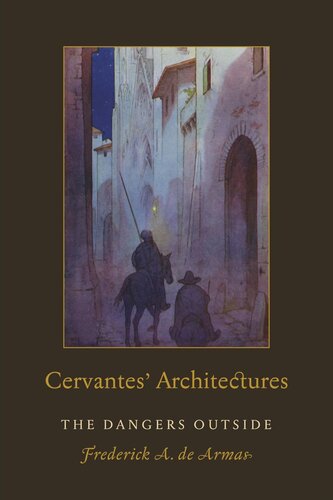

Most ebook files are in PDF format, so you can easily read them using various software such as Foxit Reader or directly on the Google Chrome browser.
Some ebook files are released by publishers in other formats such as .awz, .mobi, .epub, .fb2, etc. You may need to install specific software to read these formats on mobile/PC, such as Calibre.
Please read the tutorial at this link: https://ebookbell.com/faq
We offer FREE conversion to the popular formats you request; however, this may take some time. Therefore, right after payment, please email us, and we will try to provide the service as quickly as possible.
For some exceptional file formats or broken links (if any), please refrain from opening any disputes. Instead, email us first, and we will try to assist within a maximum of 6 hours.
EbookBell Team

4.7
96 reviewsCervantes’ Architectures is the first book dedicated to architecture in Cervantes’ prose fiction. At a time when a pandemic is sweeping the world, this book reflects on the danger outside by concentrating on the role of enclosed structures as places where humans may feel safe, or as sites of beauty and harmony that provide solace. At the same time, a number of the architectures in Cervantes trigger dread and claustrophobia as they display a kind of shapelessness and a haunting aura that blends with the narrative.
This volume invites readers to discover hundreds of edifices that Cervantes built with the pen. Their variety is astounding. The narrators and characters in these novels tell of castles, fortifications, inns, mills, prisons, palaces, towers, and villas which appear in their routes or in their conversations, and which welcome them, amaze them, or entrap them. Cervantes may describe actual buildings such as the Pantheon in Rome, or he may imagine structures that metamorphose before our eyes, as we come to view one architecture within another, and within another, creating an abyss of space. They deeply affect the characters as they feel enclosed, liberated, or suspended or as they look upon such structures with dread, relief, or admiration.
Cervantes' Architectures sheds light on how places and spaces are perceived through words and how impossible structures find support, paradoxically, in the literary architecture of the work.